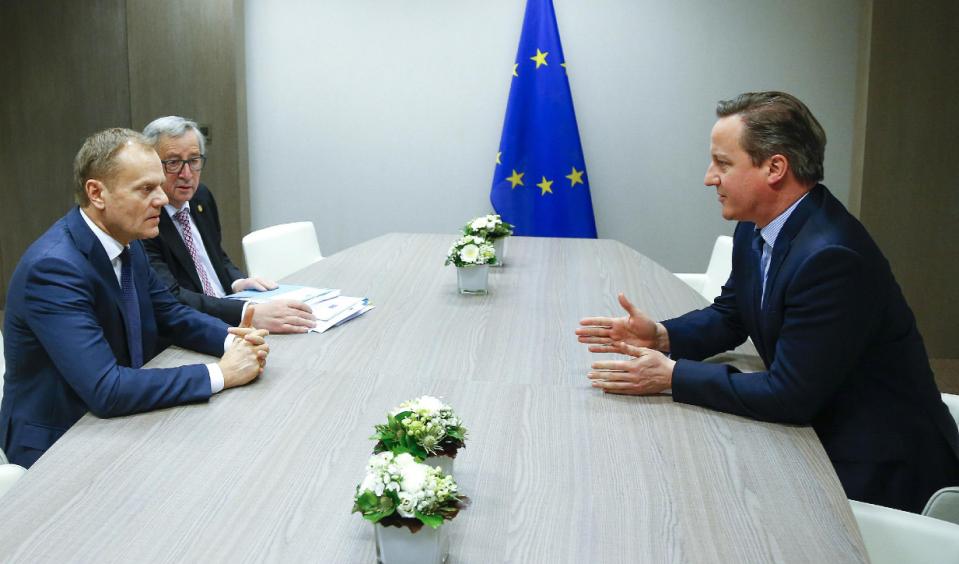BRUSSELS — Prime Minister David Cameron on Friday pledged Britain will never become part of a “European superstate” thanks to a hard-fought deal for a less intrusive European Union which he hopes will sway voters in a referendum to keep the island nation in the 28-nation bloc.
The agreement Cameron won is a key stepping stone to the in-out referendum in Britain that could come as soon as this summer.
Cameron claimed that, under the deal, Britain would be allowed to stay on EU sidelines if other nations seek a closer union and has been guaranteed its social welfare would win more protection from unfair EU migrant claims. He also pledged the economy will prosper outside the euro area.
“This is enough for me to recommend that the United Kingdom remain in the European Union having the best of both worlds,” Cameron said after 31 hours of negotiations.
“Turning our back on Europe is no solution at all,” he said, adding that the new deal would guarantee for a “live and let live” approach which will fit Britain like a glove. He declined to say when he might call the referendum, although June 23 is thought a likely date.
EU President Donald Tusk said the deal didn’t come easy during two days of “long and heated” discussions during which leaders “haggled over detail” and fundamental issues.
Some said though, much was style over substance as all leaders needed to prove they would safeguard issues their electorate held dear. Still, Lithuanian President Dalia Grybauskaite said the deal should give the British public a clear choice.
“No matter what we do here, no matter what face-lifting or face-saving we perform here, it is up to the British people to decide,” she said.
Other leaders said it would not stop deeper integration among countries that want to, that the euro would remain the currency of the EU and that the agreement did not give Britain any veto.
The deal will only be enacted if Britain stays in the EU.
Outside the British Parliament in London, a leading anti-EU politician, Nigel Farage, took part in a rally denouncing the deal as it was announced.
“This is a truly pathetic deal,” he said. “We are good enough to be an independent, self-governing nation outside of the EU. This (referendum) is our golden opportunity.”

